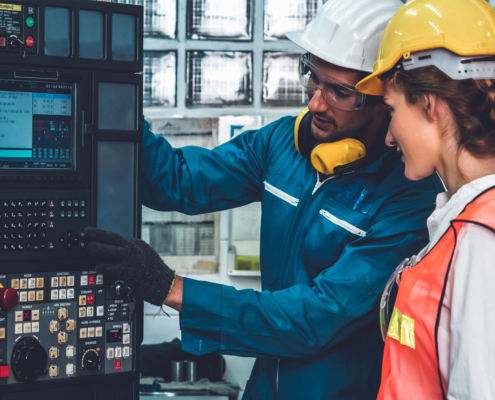 https://www.sbmech.com/wp-content/uploads/2024/09/Group-of-factory-job-workers-using-machine-equipment-in-manufacturing-workshop.jpg
1250
2000
Abstrakt Marketing
/wp-content/uploads/2023/10/cropped-Smith-Boughan_Logo-Formated-Lima-13-1030x269.jpg
Abstrakt Marketing2024-09-24 09:08:182024-11-19 11:07:52Understanding Control in Industrial Maintenance
https://www.sbmech.com/wp-content/uploads/2024/09/Group-of-factory-job-workers-using-machine-equipment-in-manufacturing-workshop.jpg
1250
2000
Abstrakt Marketing
/wp-content/uploads/2023/10/cropped-Smith-Boughan_Logo-Formated-Lima-13-1030x269.jpg
Abstrakt Marketing2024-09-24 09:08:182024-11-19 11:07:52Understanding Control in Industrial MaintenanceCommercial building maintenance is critical to ensuring safe and efficient structures. With diverse components like interior and exterior maintenance and specialized services, the role of facility managers becomes increasingly important. This article discusses different aspects of commercial building maintenance and the importance of routine inspections.
What Is Commercial Building Maintenance
Commercial building maintenance refers to the proactive and reactive measures taken to ensure the functionality, safety, and aesthetics of facilities used for business purposes. This complex process encompasses a range of activities, from routine cleaning to the repair of HVAC systems, aimed at preserving or improving the value of commercial properties.
Types of Commercial Building Maintenance
There are several types of maintenance within the realm of commercial building maintenance, including:
- Preventive Maintenance – Scheduled activities like regular inspections to prevent equipment failures before they occur
- Corrective Maintenance – Repairs and adjustments made in response to breakdowns.
- Predictive Maintenance – Utilizing technology to predict equipment failures before they happen.
- Emergency Maintenance – Unplanned repairs to address unexpected problems.
These types ensure the comprehensive upkeep of commercial facilities, covering all potential aspects of building maintenance, from HVAC systems to electrical installations.
Importance of Commercial Building Maintenance
Maintaining Building Performance
Regular maintenance of commercial buildings is crucial for maintaining the performance of building systems. Regular cleaning, scheduled repairs, and preventive maintenance activities help ensure the smooth operation of HVAC systems, plumbing, and electrical installations. This contributes to the building’s infrastructure’s longevity and ensures that service providers can offer outstanding service to tenants and clients.
Ensuring Safety and Compliance
Compliance with safety regulations and building codes is non-negotiable in managing commercial properties. Commercial maintenance includes regular inspections and maintenance activities that address safety hazards, reducing the risk of accidents and ensuring the well-being of occupants. External service providers and facility maintenance teams work in concert to uphold these standards, leveraging their expertise to ensure commercial facilities adhere to all legal and operational requirements.
Enhancing Property Value and Aesthetics
Well-maintained commercial properties attract tenants and clients through their aesthetic appeal and operational efficiency. Regular exterior and interior maintenance, from facade cleaning to landscaping, contributes to the visual appeal of commercial real estate facilities. This investment in commercial property maintenance enhances the user experience and significantly boosts property valuation over time.
Components of Commercial Building Maintenance
Interior Maintenance
At the core of commercial building maintenance is the upkeep of the interior. This includes:
- Regular Cleaning – Ensuring the cleanliness and hygiene of the commercial environment
- Plumbing and Electrical Maintenance – Keeping all installations and fixtures in working order
- HVAC Systems Maintenance – Ensuring the optimal operation of heating, ventilation, and air conditioning units for comfort and efficiency
These tasks, essential for the proper operation of commercial buildings, require the expertise of skilled service professionals who ensure that premises meet the high standards expected by occupants and visitors.
Exterior Maintenance
Exterior maintenance of commercial buildings focuses on preserving the building’s facade, landscaping, and access routes. Key activities include:
- Facade Cleaning and Repairs – Maintaining the building’s aesthetic appeal and structural integrity
- Landscaping and Grounds Maintenance – Enhancing the property’s visual appeal and environmental quality
- Parking and Walkway Maintenance – Ensuring safe and accessible entry and exit points for all users
These external maintenance efforts enhance the property’s curb appeal and contribute to a positive first impression on visitors and potential tenants.
Specialized Maintenance
Commercial buildings also require specialized maintenance tasks that are critical for their operation and safety, such as:
- Elevator maintenance – Ensuring the safety and reliability of vertical transportation
- Fire and safety equipment maintenance – Keeping all safety systems functional and compliant with regulations
- Pest Control – Preventing infestations that can affect the health and comfort of occupants
These specialized tasks demand the attention of qualified professionals equipped to handle the complexities of commercial facilities maintenance.
Smith-Boughan Mechanical offers commercial building maintenance plans that meet the needs of any business. Check out our solutions today.
What Are the Consequences of Not Having Commercial Building Maintenance?
Neglecting commercial building maintenance can lead to a range of negative consequences that impact both the physical structure and the day-to-day operations of the business. Here are some of the key repercussions:
Increased Repair and Replacement Costs
Small, undetected issues can escalate into major problems if not addressed early. This can lead to expensive repairs or the need for complete replacements that could have been avoided with regular maintenance. Systems like HVAC, plumbing, and electrical systems can be especially costly to repair or replace if they fail due to neglect.
Safety Hazards
Lack of maintenance can compromise the safety of the building. For example, faulty electrical systems can increase the risk of fires, while structural wear and tear can harm occupants. Regular maintenance helps identify and mitigate these risks before they escalate into accidents or emergencies.
Decreased Property Value
A well-maintained building retains or increases its value over time. Conversely, a building that has not been properly maintained can quickly deteriorate, leading to a decrease in its market value. This can be particularly problematic if the owner decides to sell or lease the property.
Reduced Operational Efficiency
Systems that are not regularly maintained, such as HVAC or plumbing, may not operate efficiently. This can lead to increased operational costs, such as higher energy bills, and affect the comfort and productivity of the building’s occupants.
What to Look for in a Commercial Building Maintenance Provider
Reputation and Experience
A provider’s reputation is often a reliable indicator of their capabilities. Research their track record by checking reviews, testimonials, and references. Experience in managing properties similar to yours demonstrates a provider’s ability to handle diverse challenges and maintain various facility types.
Services Offered
Consider the scope of services offered by a maintenance provider. A comprehensive range covering HVAC, plumbing, electrical, landscaping, and janitorial services is crucial. Ensure they can handle preventive maintenance and emergency repairs, offering a holistic solution for your building’s needs.
Compliance and Licensing
Verify the provider’s compliance with regulations and ensure they hold the necessary licenses and certifications. This ensures they adhere to industry standards and are legally qualified to perform the required services.
Insurance Coverage
Accidents happen, and it’s essential to be prepared. Ensure your chosen provider has adequate insurance coverage, including liability insurance and workers’ compensation. This safeguards you from potential liabilities arising from accidents or damages during maintenance activities.
Response Time and Availability
In emergencies, time is of the essence. Evaluate the provider’s response time for urgent situations and their availability for routine maintenance tasks. A dependable provider should be reachable and responsive during and outside regular business hours.
Technology and Innovation
Consider the provider’s use of technology in their maintenance processes. Those utilizing modern tools and systems, such as computerized maintenance management systems (CMMS), may offer more efficient and transparent services, leading to better overall maintenance outcomes.
Maintain Your Building With Smith Boughan’s Commercial Building Maintenance Services
Partnering with a reputable commercial building maintenance provider is key for catching and repairing small issues. Smith Boughan’s mechanical service team has decades of experience and leverages its knowledge and expertise to ensure your critical equipment is operating properly.
Our team has experience working on HVAC and plumbing equipment from leading vendors, including:
- Carrier
- Trane
- York
- HydroTherm
- And more
Contact us today to learn more about our commercial building maintenance solutions and plans.
Share This Post
More Like This
 https://www.sbmech.com/wp-content/uploads/2024/09/Group-of-factory-job-workers-using-machine-equipment-in-manufacturing-workshop.jpg
1250
2000
Abstrakt Marketing
/wp-content/uploads/2023/10/cropped-Smith-Boughan_Logo-Formated-Lima-13-1030x269.jpg
Abstrakt Marketing2024-09-24 09:08:182024-11-19 11:07:52Understanding Control in Industrial Maintenance
https://www.sbmech.com/wp-content/uploads/2024/09/Group-of-factory-job-workers-using-machine-equipment-in-manufacturing-workshop.jpg
1250
2000
Abstrakt Marketing
/wp-content/uploads/2023/10/cropped-Smith-Boughan_Logo-Formated-Lima-13-1030x269.jpg
Abstrakt Marketing2024-09-24 09:08:182024-11-19 11:07:52Understanding Control in Industrial Maintenance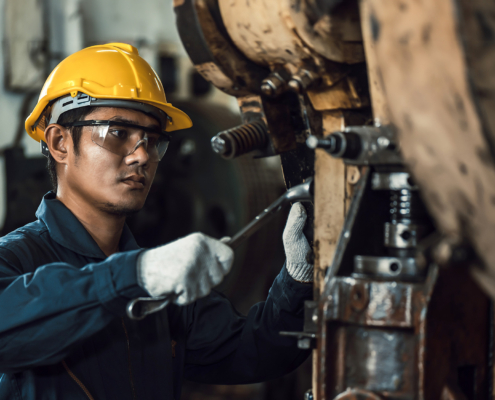
How to Develop a Quality Control Plan for Industrial Maintenance
Industrial Services (Quality Control), Maintenance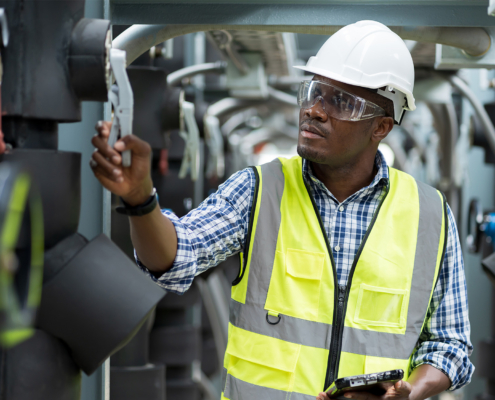
Understanding Industrial Maintenance Compliance Guidelines
Industrial Services (Maintenance), Maintenance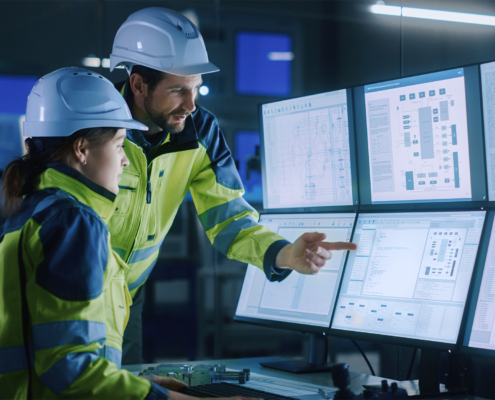
The Role of Technology in Industrial Maintenance Practice Innovations
Industrial Services (Maintenance), Maintenance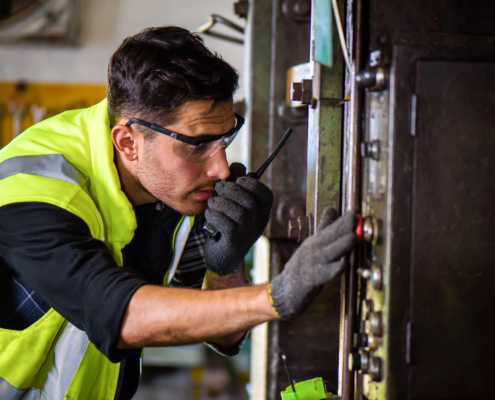
Factors to Consider When Choosing an Industrial Maintenance Provider
Industrial Services (Maintenance), Maintenance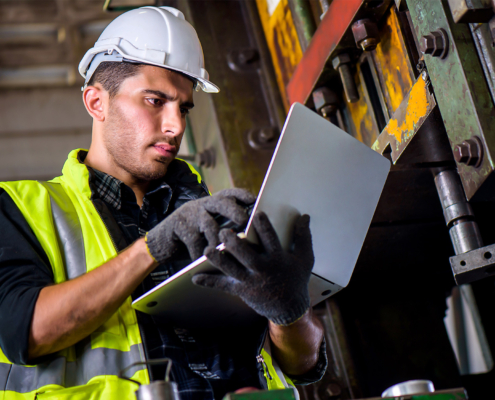
Best Practices for Improving Industrial Maintenance
Industrial Services (Maintenance), Maintenance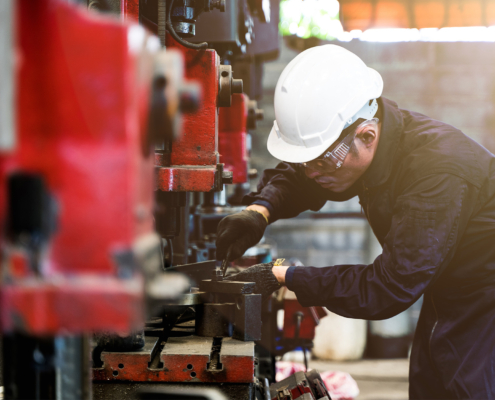
Exploring the Benefits of Routine Industrial Maintenance
Building Services (Maintenance Agreements), Maintenance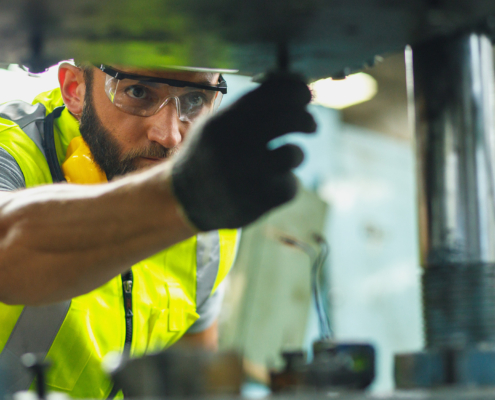
Your Guide to Industrial Maintenance
Building Services (Maintenance Agreements), Maintenance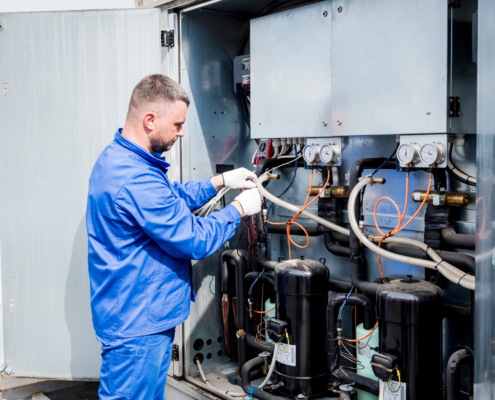
The Importance of a Commercial HVAC Maintenance Agreement
MaintenanceAbout Us
Smith-Boughan Mechanical has been servicing the Lima, Ohio, region with industry-leading mechanical design, fabrication, construction, and maintenance services since 1927.



